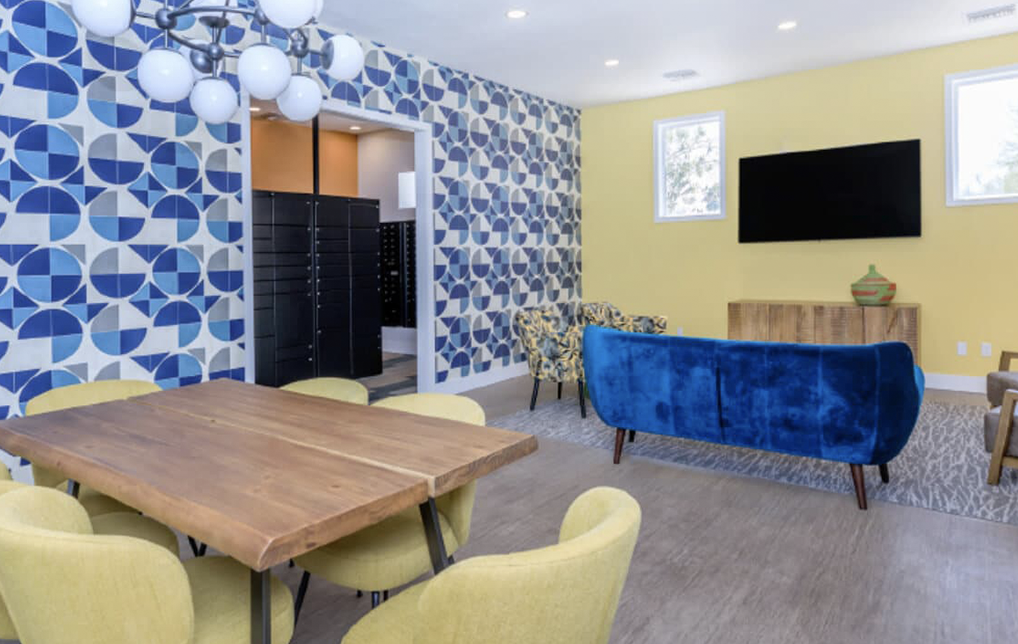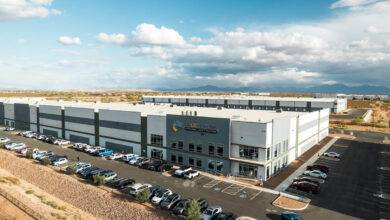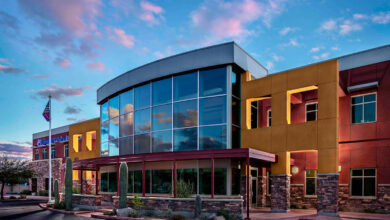
Holualoa Companies Converts Student Housing to Market Rate Apartments
Holualoa Companies was founded in 1985 with a philosophy of discipline, attention to detail, patience and an opportunistic mindset. The company has traditionally focused on purchasing and repositioning underperforming real estate assets, including over $3 billion of office, retail, industrial, hospitality and multifamily properties in the United States and Europe.
In recent years, in order to continue providing investors with exceptional returns, the company began adding more development projects in the portfolio.
In 2018, Holualoa acquired Gateway at Tucson, an underperforming, 188-unit, 552-bed student housing project. The intent was to convert it into a dynamic and inviting residential community, transitioning it from a student housing property to a conventional apartment property serving the local workforce, snowbirds and students.
The property was originally developed in 2005 during a cycle of student housing development on Tucson’s west side. In 2012, the Downtown Area Infill Incentive District and Main Gate Urban Overlay District provided zoning changes that enabled development of mid- and high-rise student properties adjacent to the University of Arizona, putting competitive pressure on outlying student properties like Gateway.
Holualoa purchased the property via an online auction from the lender. Purchasing properties by way of auction provides challenges compared to traditional purchases. For example, the company had very limited access to the property prior to closing and could not inspect the roofs, pools, mechanical systems, etc. Therefore, it built in higher-than-normal contingency amounts into the underwriting. Upon closing and getting full access to the property, Holualoa was pleasantly surprised that the property had “good bones.”
Upon acquisition, the company immediately replaced the out-of-state property manager with Scotia Group Management. Holualoa has developed a relationship over the past 25 years managing Tucson apartments together and found Scotia’s expertise and managerial ability to compound value. After the acquisition closed, Holualoa began leasing the units on a per unit basis instead of per bedroom while it worked on renovation plans.
The transition from student housing to a conventional apartment property included significant renovations to the property’s amenities, upgrading the interiors of the one, two-, and three-bedroom units, and splitting each of the four-bedroom/four-bathroom units into a two-bedroom/two-bathroom and a one bedroom/one bathroom unit (converting one of the bathrooms and bedroom into a living room and kitchen). Reconfiguration of four-bedroom units added 83 units to the property. The company worked with its property manager, general contractor, architects and designer to determine the best way to split the four-bedroom units into the two-bedroom and one-bedroom units.
Holualoa worked with designer Lidda Design to renovate the amenity rooms to cater to the broader, desired demographic. The spaces that were formerly used for study pods and tanning beds were converted into a mail room and tenant lounge. The fitness room was relocated and the former fitness room was converted into a club house, entertainment room and kitchen. The company also completed extensive renovations to the common areas including replacing the landscaping over the entire 12-acre project, replastering the pool, painting the exterior, repaving the parking lot, and upgrading the plumbing fixtures to water-efficient units.
Holualoa started construction in late 2019 with Tofel Dent as the general contractor, working in concert throughout the process. Development was not without its challenges. For example, since half of the four-bedroom units were located on the second story, the company had to add staircases to the newly created units. Determining the layout and location of these new stairs to not interfere with the first story units, landscaping, elevation variants and building code regulations required a dedicated effort from the entire renovation team.
With construction ramping up in early 2020, Holualoa experienced the effects of COVID-19 and worked through labor shortages, supply chain distributions and delays in government approvals. The property remained partially occupied throughout the construction project. Retaining occupancy proved to be a helpful gauge of consumer sentiment as each converted unit served as its own test case. Once each building was complete, the units were added to the rental pool and rents were incrementally adjusted in response to market conditions.
The renovations and unit conversions were completed in April below budget. Once the renovation was complete, Holualoa rebranded the property to Sonoran Reserve. The rental market has validated the plans—the property is 100% leased at rents that are 57% higher than when the property was acquired, surpassing underwriting assumptions.
The project demonstrates Holualoa’s mission set forth in 1985: Giving attention to detail and working with a trusted team of contractors and suppliers to meet the needs of its tenants, which increases the value of its investments, resulting in exceptional returns to its investors.





